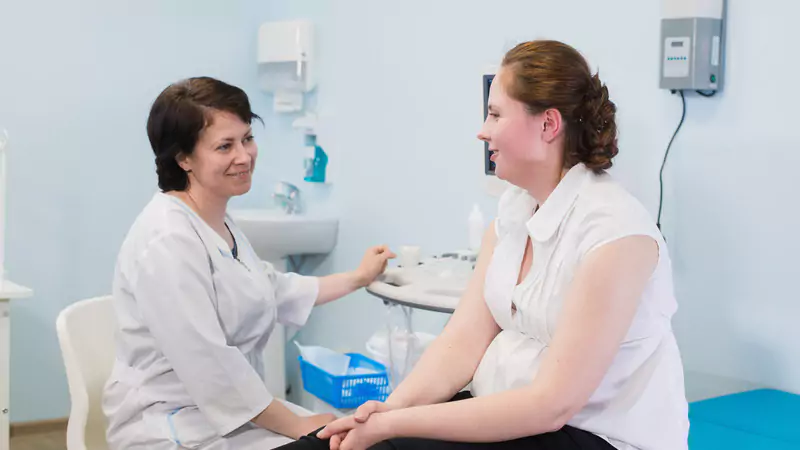Key Points
- Nurse Anesthetists often top salary charts with specialized skills.
- Nurse Practitioners can earn six figures in many healthcare settings.
- Advanced degrees and certifications boost nursing career prospects.
- Job demand for nurses is projected to rise, according to statistics.
- Practical experience and networking also increase earning potential.
- Each role has unique education requirements and clinical focuses.
- High-paying nursing positions can offer both financial and personal rewards.
The Top 10 Highest Paying Nursing Jobs
Nurse Anesthetist (CRNA)

If you’ve ever been curious about the healthcare professionals who help you drift off to dreamland before surgery, you’re probably thinking of a Nurse Anesthetist. These highly skilled nurses often make between $180,000 and $220,000 a year, thanks to their expertise in administering anesthesia and monitoring patients’ vital signs.
According to the Bureau of Labor Statistics, the need for this specialized role keeps rising, so you’ll likely find job security along with a handsome paycheck. To become a CRNA, you’ll need a Bachelor of Science in Nursing (BSN), a valid RN license, and experience in critical care before pursuing a graduate degree in anesthesia.
It’s a challenging path, but if you’re comfortable around surgical settings and have nerves of steel, this career can be as rewarding as a surprise candy bar on a tough day.
Nurse Practitioner (NP)

A Nurse Practitioner is like a healthcare superhero capable of performing exams, diagnosing illnesses, and even prescribing medication in most states. Salaries can range from $100,000 to $150,000 per year, depending on your specialty and location. The BLS notes that job growth for NPs is skyrocketing, reflecting the increased emphasis on accessible primary care.
To become one, you typically need a BSN, an RN license, and a Master of Science in Nursing (MSN) or a Doctor of Nursing Practice (DNP) degree, along with certification in a chosen focus like family practice or pediatrics.
This role is fantastic if you love a challenge, enjoy autonomy, and want to build long-term relationships with patients, all while earning enough to treat yourself to fancy weekend getaways and maybe even a new gadget or two.
Nurse Midwife

For those captivated by the miracle of birth, a Nurse Midwife might just be your calling, as these professionals earn around $90,000 to $130,000 per year. Their job goes beyond delivering babies; they also provide comprehensive care for women, including gynecological exams and family planning advice.
According to ACNM statistics, nurse midwives attend nearly 10% of all births in the United States, and that number continues to climb as more families seek personalized care. Becoming a nurse midwife typically involves completing a BSN, obtaining RN licensure, and then pursuing a graduate program in nurse-midwifery.
It’s a role that demands a deep sense of compassion and the ability to stay cool under pressure (imagine coaching someone through contractions!), but if you’re up for the adventure, the combination of personal fulfillment and a solid salary might just make you feel like you’ve won the lottery of nursing careers.
Clinical Nurse Specialist (CNS)

A Clinical Nurse Specialist is a bit like a teacher, researcher, and nurse combined into one powerhouse package, often earning between $85,000 and $120,000 annually. Their expertise focuses on specific areas such as oncology, cardiology, or mental health, allowing them to drive improved patient outcomes and shape hospital policies.
According to some research studies, facilities that employ CNS professionals often see reduced healthcare costs and shorter patient stays. To become one, you’ll need at least a master’s degree in nursing along with clinical experience in your chosen specialty, plus certifications that can vary by state.
If you love digging into the latest evidence-based practices and you’re not shy about sharing your insights with a busy healthcare team, then stepping into this specialized role can feel a bit like starring in your own medical detective show while taking home a very respectable paycheck.
Nurse Researcher

If you’re the curious type who always wondered why certain medications work better than others, you might excel as a Nurse Researcher. With average salaries ranging from $75,000 to $110,000, these nurses dive into studies that affect real patient outcomes, sometimes working for universities, private firms, or government organizations.
In fact, NIH-backed studies often rely on nurse researchers to shape everything from treatment protocols to public health guidelines. Getting there usually means securing at least a BSN, though many positions prefer advanced degrees like an MSN or PhD in Nursing.
It’s a career best suited for detail-oriented individuals who love data and aren’t afraid to present findings at conferences or in academic journals. Think of it as puzzle-solving on a large scale, where your revelations can lead to better medications, improved healthcare policies, or even life-saving interventions.
Nurse Educator

A Nurse Educator is the kind of professional who shapes the future of nursing by teaching, mentoring, and advising the next generation of RNs, often earning between $70,000 and $100,000 a year. Many nurse educators work in academic settings like universities or community colleges, though some lead training programs within hospitals.
According to the American Association of Colleges of Nursing, there’s a noticeable shortage of nursing faculty, which means plenty of opportunities for those who prefer a teaching role. Becoming a nurse educator generally involves earning an MSN or a doctoral degree in nursing education, plus real-world clinical experience.
If you have a knack for explaining complex concepts and cracking the occasional joke to keep your students engaged, this path is a dream come true. It’s a chance to mold the next wave of healthcare heroes while maintaining a comfortable work-life balance and a decent paycheck to boot.
Nurse Informaticist

For the tech-savvy nurse, a career as a Nurse Informaticist could be as exciting as unboxing the latest smartphone. These professionals often make $80,000 to $115,000 per year by merging clinical know-how with data management and information technology.
They help design and optimize electronic health records, streamline patient care processes, and analyze healthcare trends to improve outcomes. HIMSS research shows that organizations that harness health informatics effectively can reduce errors and bolster patient satisfaction rates.
To become a nurse informaticist, you’ll typically start with a BSN and an RN license, followed by specialized certificates or a master’s in health informatics. It’s ideal if you enjoy tinkering with new tools, exploring analytics, and bridging communication gaps between nurses and IT staff.
Think of it as being the translator who ensures that patient data flows smoothly, resulting in more efficient hospitals and happier patients—and a respectable paycheck for you.
Travel Nurse

If you’ve ever fantasized about stamping your passport while still taking home a solid paycheck, consider becoming a Travel Nurse. While pay rates vary widely, it’s not uncommon to see salaries anywhere between $75,000 and $120,000 annually, especially if you snag assignments in high-need areas or sign short-term contracts with bonuses.
According to some industry stats, travel nurses fill critical staffing gaps, allowing them the flexibility to pick and choose their destinations. To qualify, you’ll need at least an RN license and typically a year or more of experience in a specialty such as ICU, ER, or labor and delivery.
This role demands adaptability and a spirit of adventure, since you’ll be living out of a suitcase and learning the ropes in different hospitals. But if you thrive on variety and want to see new places while raking in a decent wage, it can feel like hitting the career jackpot.
Pediatric Nurse

A Pediatric Nurse specializes in caring for children, from adorable newborns to feisty teenagers, generally earning around $60,000 to $95,000 a year. While it might not top the charts in terms of salary compared to advanced roles, many pediatric nurses find that the joy of comforting scared little ones and engaging parents is worth its weight in gold.
According to the Federal Interagency Forum on Child and Family Statistics, the U.S. child population is over 73 million, indicating a strong need for compassionate pediatric care. Becoming a pediatric nurse usually involves an RN license, a BSN, and possibly additional certifications like Certified Pediatric Nurse (CPN).
If you’ve got a friendly demeanor and enough patience to handle toddlers asking a million questions, this path can be incredibly rewarding. Plus, you’ll likely have plenty of hilarious kid-inspired stories to share at the dinner table.
Operating Room (OR) Nurse

An Operating Room Nurse is a pivotal player in the surgical process, making anywhere from $65,000 to $110,000 annually, depending on experience and certifications. These nurses assist surgeons, manage surgical instruments, and keep the environment sterile, all while ensuring patient safety. According to AORN guidelines, quality OR nurses significantly lower the risk of postoperative complications.
To step into these specialized shoes, you’ll need an RN license, often a BSN, plus clinical exposure in perioperative nursing. You might also pursue a CNOR (Certified Nurse Operating Room) credential. If you thrive under pressure and love the teamwork aspect of a surgical suite, you’ll find this career both exhilarating and lucrative, as you play a direct role in some of the most life-changing moments patients can experience.
Intensive Care Unit (ICU) Nurse

An ICU Nurse works in the fast-paced critical care environment, earning anywhere from $65,000 to $105,000 or more per year, often depending on location, shift differentials, and certifications like CCRN (Critical Care Registered Nurse).
Statistics from the American Association of Critical-Care Nurses suggest that demand for ICU nurses remains robust as hospitals strive to maintain high patient safety standards. Becoming one typically involves an RN license, a BSN, and hands-on experience in high-acuity settings, plus a healthy dose of emotional resilience.
You’ll be monitoring life-support systems, administering complex medications, and comforting families during high-stress moments. While the stakes can feel huge, the sense of accomplishment you get from helping patients pull through critical conditions can be as heartwarming as finding a batch of homemade cookies on your doorstep.
Nurse Manager

A Nurse Manager marries clinical expertise with leadership skills, often making between $80,000 and $120,000 per year by overseeing entire units or departments. They juggle budgets, staff schedules, and patient outcomes all at once, kind of like managing a small city—only everyone’s wearing scrubs.
Nursing administration data indicate that strong nurse managers can significantly improve staff retention and boost patient satisfaction rates. To land this role, you’ll typically need an RN license, a BSN, and a good amount of clinical experience, plus a knack for problem-solving and communication.
Some managers pursue master’s degrees in healthcare administration or nursing leadership, which can fast-track them to higher-paying positions. If you can confidently balance people, paperwork, and protocols without losing your cool, you’ll find this job both challenging and deeply satisfying—like solving a tricky puzzle that benefits everyone around you.

